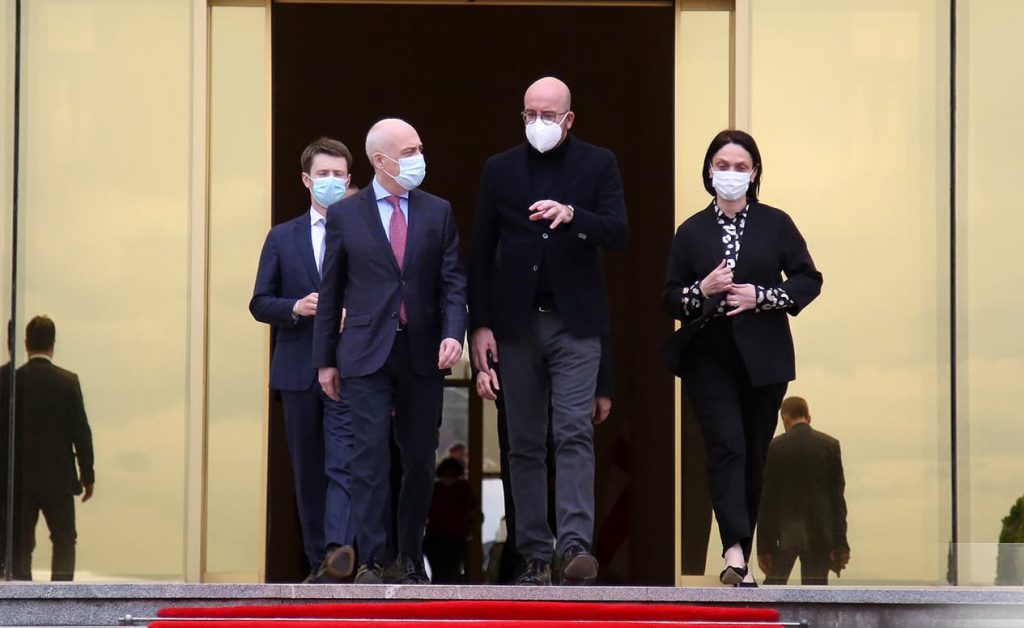Georgian Foreign Minister David Zalkaliani believes “Charles Michel’s visit proves Georgia is an extremely important partner for our European partners.”
FM Zalkaliani claims Georgia’s Europeanization process is irreversible.
“From now on, the whole political spectrum, the government is focused on solving the country’s most important challenges. The central focus should be on taking very bold steps linked to an ambitious plan to apply for EU membership by 2024,” Zalkaliani added.
European Council President Charles Michel, who arrived in Georgia shortly after the government and the opposition signed the EU-proposed agreement, has left for Brussels on Wednesday morning.
The ruling Georgian Dream party, as well as opposition parties, including Lelo for Georgia, Citizens, Republicans, Strategy Agmashenebeli, Girchi, and Girchi – More Freedom signed the renewed EU-backed compromise paper earlier this week.
Several current and former members of the United National Movement and European Georgia have also signed the agreement individually, however, other representatives of both parties as well as the Labour Party rebuff to sign the document yet.
Charles Michel’s new proposal implies electoral and justice reforms, offers a pardon for all violations and convictions stemming from the 19-21 June 2019 protests and the conduct of repeat parliamentary elections in 2022 if the ruling Georgian Dream party fails to receive at least 43 % of votes in upcoming municipal elections.
For the record, Georgian opposition parties that won seats in the Georgian Parliament of the 10th Convocation believe the 2020 parliamentary elections were a fraud. They have been demanding repeat parliamentary elections and the release of the United National Movement Chair, Nika Melia, and the co-founder of the TV channel Mtavari Arkhi Giorgi Rurua.
The second EU-mediated attempt to solve political crises in Georgia failed. EU mediator Christian Danielsson proposed a solution to political actors on March 31.
